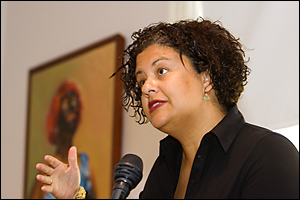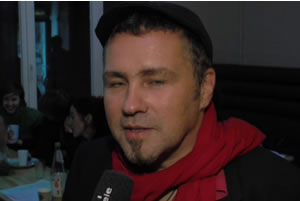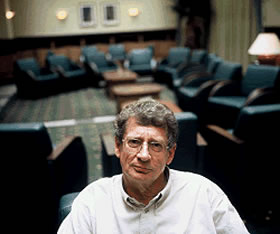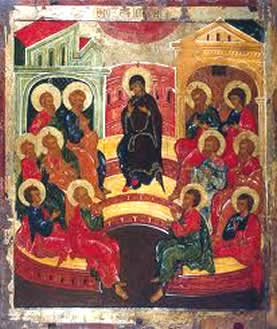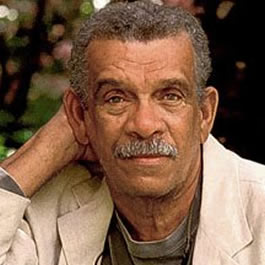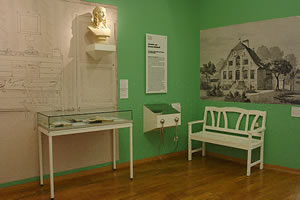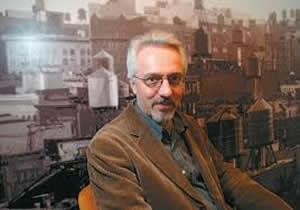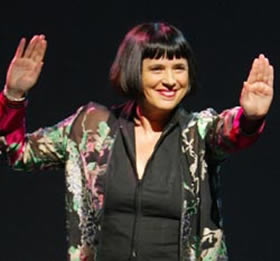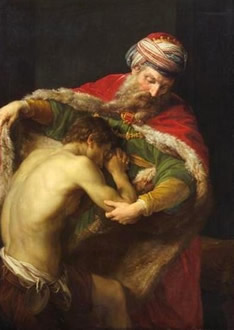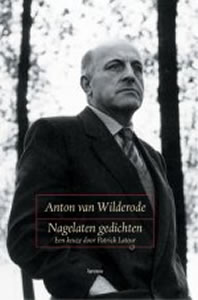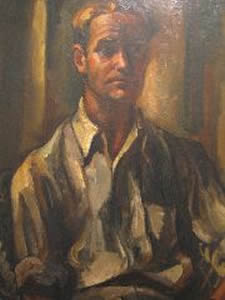De Amerikaanse dichter Walt Whitman werd geboren op 31 mei 1819 in Westhills, Long Island, New York. Zie ook alle tags voor Whalt Whitman op dit blog.
Facing west from California’s shores
FACING west from California’s shores,
Inquiring, tireless, seeking what is yet unfound,
I, a child, very old, over waves, towards the house of maternity, the land of migrations, look afar,
Look off the shores of my Western sea, the circle almost circled;
For starting westward from Hindustan, from the vales of Kashmere,
From Asia, from the north, from the God, the sage, and the hero,
From the south, from the flowery peninsulas and the spice islands,
Long having wander’d since, round the earth having wander’d,
Now I face home again, very pleas’d and joyous,
(But where is what I started for so long ago? And why is it yet unfound?)
Uit: Calamus Poems (Fragment)
2.
Scented herbage of my breast,
Leaves from you I yield, I write, to be perused best afterwards,
Tomb-leaves, body leaves, growing up above me, above death,
Perennial roots, tall leaves — O the winter shall not freeze you, delicate leaves,
Every year shall you bloom again — Out from where you retired, you shall emerge again;
O I do not know whether many, passing by, will discover you, or inhale your faint odor — but I believe a few will;
O slender leaves! O blossoms of my blood! I permit you to tell, in your own way, of the heart that is under you,
O burning and throbbing — surely all will one day be accomplished;
O I do not know what mean, there underneath yourselves — you are not happiness,
You are often more bitter than I can bear — you burn and sting me,
3.
1.
Whoever you are holding me now in hand,
Without one thing all will be useless,
I give you fair warning, before you attempt me further,
I am not what you supposed, but far different.
2.
Who is he that would become my follower?
Who would sign himself a candidate for my affections? Are you he?
3.
The way is suspicious — the result slow, uncertain, may-be destructive;
You would have to give up all else — I alone would expect to be your God, sole and exclusive,
Your novitiate would even then be long and exhausting,
The whole past theory of your life, and all conformity to the lives around you, would have to be abandoned;
Therefore release me now, before troubling yourself any further — Let go your hand from my shoulders,
Put me down, and depart on your way.
4.
Or else, only by stealth, in some wood, for trial,
Or back of a rock, in open air,
(for in any roofed room of a house I emerge not — nor in company,
And in the libraries I lie as one dumb, a gawk, or unborn, or dead,)
But just possibly with you on a high hill — first watching lest any person, for miles around, approach unawares,
Or possibly with you sailing at sea, or on the beach of the sea, or some quiet island,
Here to put your lips upon mine I permit you,
With the comrade’s long-dwelling kiss, or the new husband’s kiss,
For I am the new husband, and I am the comrade
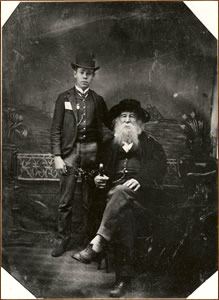
Walt Whitman (31 mei 1819 – 26 maart 1893)
Hier met vriend Bill Duckett, rond 1886
Lees verder “Walt Whitman, Frank Goosen, Gabriel Barylli, Konstantin Paustovski”

